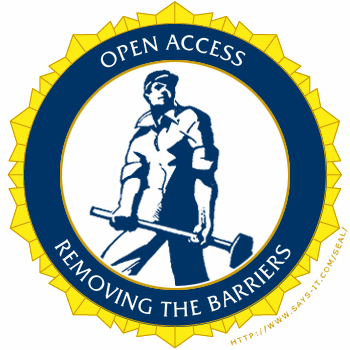Gite it away now! Open Acces as a Political Religion

Every time I want to access a scholarly article I need to enter my university password and when I want to make a source available for others – as in this blog – it is almost never possible. I love it when an article or a book is published directly on the internet. No passwords and easy sharing. I was even mildly infected by the Open Acces (OA) virus: I tried to provide links to alternative sources (mostly Wikipedia) beside my scholarly references to make the blog more accessible.
So far my appraisal. From reading about OA I learned it is often uncritically applauded. I looked into the possibility if Open Acces is a Political Religion to get a better understanding of how beliefs and opinions play a role in thinking and writing about OA.
Kathleen Fitzpatrick is an outspoken advocate of OA. She uses David Foster Wallace’s Infinite Jest to support her belief: ‘You give it up to get it back to give it away.’ […] ‘The only way to hang onto sobriety is to give it away. . . ’[1] Wallace describes in the quote how in AA sobriety is perceived as a loan. This loan is never payed but can be payed forward by helping other drunks to sober up.
According to Fitzpatrick OA resembles the giving-away solution to alcohol addiction.[2]
‘What if we were to recognize that the only way to hold onto the knowledge we have— and to help higher education and the communities within which we work to thrive—is to give it away?[3]
Fellow scholar, Gary Hall ( ) too has high hopes for OA. ‘I am interested in the digital reproduction and publication of scholarship and research is because this is one arena where some academics have challenged the forces of neoliberal free-market economics in a reasonably effective manner. [4]
It almost seems Open Access is a universal truth, as some feel about democracy or the free-market economy. Even the White House adopted an OA-policy. But do we pay enough attention to the beliefs and subjectivity of OA and its supporters?
To help us to this the study of political religion may be useful.[5] Does OA have characteristics of a sacred entity? And is the approach to Political Religion a way to look at OA? I will use a definition of political religion used by Emilio Gentile to try to answer this question.
“Modern political movements are transformed into secular religions when they: (a) define the meaning of life and ultimate ends of human existence; (b) formalize the commandments of a public ethic to which all members of these movement must adhere; and (c) give utter importance to a mythical and symbolic dramatization in their interpretation of history and reality, thus creating their own ‘sacred history’, embodied in the nation, the state or the party, and tied to the existence of a ‘chosen people’, which were glorified as the regenerating force of all mankind.”
Immediately it is clear that OA does not define the meaning of life.
Point (b) is more fitting. The formalization of a public ethic to which all members of the OA-movement must adhere was provided by the Open Access summits of Budapest-Bethesda-Berlin in 2002 and 2003. In the statements following the summits the movement defined how the OA-community should behave, how they were supposed to ‘give away’.[6]
Point (c): The OA does dramatize history and reality to some extent. In this film by OA advocates Nick Shockey and Jonathan Eisen for example.
Click here to view the embedded video.
When Jonathan Eisen tells how his wife is admitted to hospital and he can’t get access to medical articles s to find out more about her condition.
The mythical aspect is the apparent obvious victory OA will bring over – for example – Third World access to knowledge and support of the civilian of Public education.[7] No, the advocates of OA do not publicly express to be ‘the chosen people’, nor do they see OA as the regenerating force of mankind.
OA-supporters as Fitzpatrick and Hall probably do view OA as the regenerating force of scholarly publishing or the internet.
Is Open Access a Political Religion? Of course not. But the similarities in the formalized commandments of a public ethic, and a slight degree of dramatization of history and reality in a ‘sacred history’ should remind us not to view Open Access’ as good in nature, and to be aware of that political beliefs and wishful thinking involved in it.
[1] Kathleen Fitzpatrick, ‘Giving It Away: Sharing and the Future of Scholarly Communication’, Journal of Scholarly Publishing 43.4 (2012), 354.
[2] Kathleen Fitzpatrick, ‘Giving It Away: Sharing and the Future of Scholarly Communication’, Journal of Scholarly Publishing 43.4 (2012), 355.
[3] Kathleen Fitzpatrick, ‘Giving It Away: Sharing and the Future of Scholarly Communication’, Journal of Scholarly Publishing 43.4 (2012), 359.
[4] Gary Hall, ‘Another University is Possible’ and ‘Notes on Creating Critical Computer Media’, in Digitize This Book! The Politics of New Media or Why We Need Open Access Now, Minneapolis: University of Minnesota Press (2008), 2.
[5] Emilio Gentile, ‘Political Religion: A Concept and its Critics – A Critical Survey’, in: Totalitarian Movements and Political Religions, Vol. 6, No. 1 (June 2005), 28.
[6] Kathleen Fitzpatrick, ‘Giving It Away: Sharing and the Future of Scholarly Communication’, Journal of Scholarly Publishing 43.4 (2012), 349.
[7] Kathleen Fitzpatrick, ‘Giving It Away: Sharing and the Future of Scholarly Communication’, Journal of Scholarly Publishing 43.4 (2012), 350.
Mute Books Orders
For Mute Books distribution contact Anagram Books
contact@anagrambooks.com
For online purchases visit anagrambooks.com





